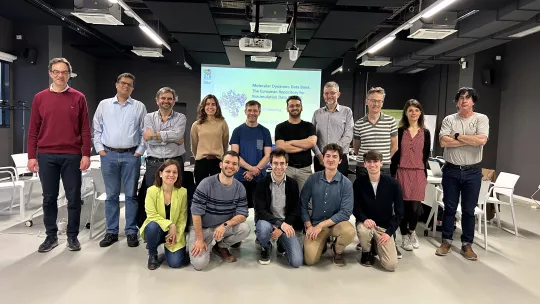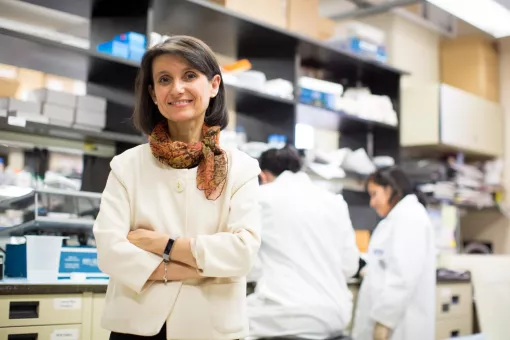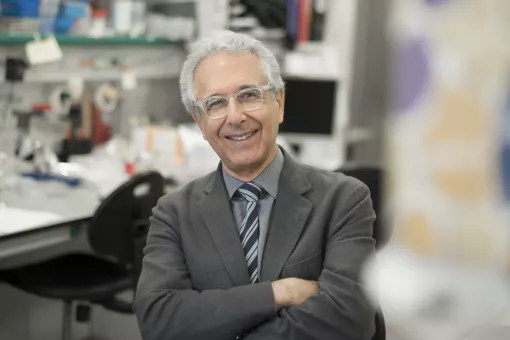Images
- The MDDB project has received €3.3 M of funding and is expected to last three years.
- In addition to IRB Barcelona, the project involves the collaboration of the European Molecular Biology Laboratory, the Barcelona Supercomputing Center, the KTH Royal Institute of Technology, the biotech Nostrum Biodiscovery, the Swiss Federal Institute of Technology in Lausanne, and the University of Oxford.
- The project's kick-off meeting took place in Barcelona on 24 and 25 April.
Molecular dynamics simulation is a computational method applied in biology to study the behaviour of molecules and complex systems. The information obtained from these simulations can be used to further our understanding of various phenomena, such as protein formation, molecule interactions, and the dynamics of chemical reactions. While molecular dynamics simulation is an emerging research field that is producing significant knowledge, there is still no unified database that compiles and stores all the data generated in an accessible and systematic way.
Researchers led by Dr. Modesto Orozco, head of the Molecular Modelling and Bioinformatics lab at the Institute for Research In Biomedicine (IRB Barcelona), have launched a project to design a European database of molecular dynamics. Over the next three years, the scientists will lay the foundations for an infrastructure that optimises computational resources, favours data analysis from different perspectives, ensures fast and efficient information exchange between various institutions, and facilitates the integration of molecular dynamics into other research fields.
On 24 and 25 April, the project's kick-off meeting was held in Barcelona and was attended by representatives from all partners involved in the project: the Barcelona Supercomputing Center (BSC CNS), EMBL's European Bioinformatics Institute (EMBL-EBI), the KTH Royal Institute of Technology in Stockholm, the spin-off Nostrum Biodiscovery (NBD), the Centre Européen de Calcul Atomique et Moléculaire (CECAM) of the Swiss Federal Institute of Technology Lausanne (EPFL) and the University of Oxford (UOXF), in addition to IRB Barcelona.
This meeting served to set out the action plan for the next three years, share strategic knowledge, and define guidelines to involve members of the scientific community who are experts in molecular dynamics.
To ensure the development of a stable long-term infrastructure, the MDDB consortium brings together high-performance data and computing centres, representatives from the molecular dynamics simulation community, and experts in data management and database operation. KTH is Europe's most important software developer, and IRB Barcelona, Nostrum Biodiscovery, BSC-CNS, KTH, and UOXF are major producers and users of molecular dynamics data. IRB Barcelona, UOXF, Nostrum Biodiscovery, and BSC-CNS were also the developers of the first prototypes of molecular dynamics databases. EMBL-EBI contributes its extensive experience in developing and operating reference biological databases, and CECAM-EPFL brings together various communities, thereby facilitating the exchange of information to build a database that meets users' needs.
The development of a molecular dynamics database could significantly impact research in fields such as biochemistry, pharmacology, personalised medicine, chemistry, and nanotechnology. "The MDDB project we are launching is a proof of concept, and we hope it serves to establish the foundation for a future infrastructure that brings together molecular simulation results and integrates them into the data ecosystem that drives current biology," explains Dr. Orozco, also a professor in the Department of Biochemistry and Biomedicine at the University of Barcelona.
The project is backed by € 3.3 M of funding (of which €2.6 M was obtained from the European Commission's Horizon Europe program, €350,000 from the British agency UK Research and Innovation, and €340,000 from the Swiss State Secretariat for Education, Research and Innovation). It will last three years and hopes to obtain the necessary support to be considered a strategic infrastructure in national and European plans.
This project has received funding from the European Union’s Horizon Europe programme under grant agreement 101094651.
About IRB Barcelona
The Institute for Research in Biomedicine (IRB Barcelona) pursues a society free of disease. To this end, it conducts multidisciplinary research of excellence to cure cancer and other diseases linked to ageing. It establishes technology transfer agreements with the pharmaceutical industry and major hospitals to bring research results closer to society, and organises a range of science outreach activities to engage the public in an open dialogue. IRB Barcelona is an international centre that hosts 400 researchers and more than 30 nationalities. Recognised as a Severo Ochoa Centre of Excellence since 2011, IRB Barcelona is a CERCA centre and member of the Barcelona Institute of Science and Technology (BIST).






